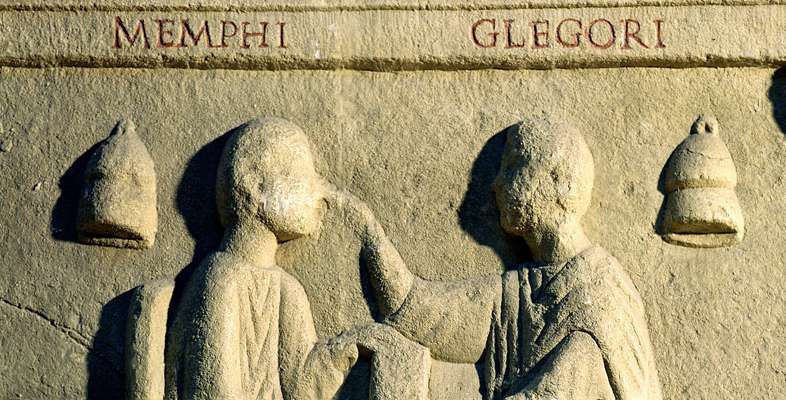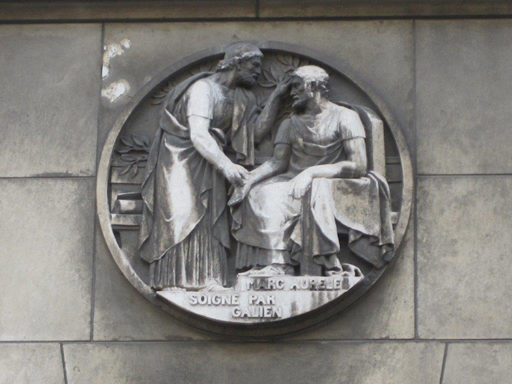3.2 Galen and Marcus Aurelius
There is no detailed information on the wealth of the great Galen himself, but his own background was certainly a wealthy one. He was born in 129 CE in Pergamum, in what is now Turkey. His father, a wealthy architect, took very seriously a dream in which Galen became a doctor. He believed the dream was sent by Asclepius.
With his father’s wealth, Galen was able to travel widely across the Mediterranean area as a student. He brought together ideas from the Hippocratic medicine of classical Greece with the philosophy of Plato and Aristotle to create an original synthesis which would dominate late antique, medieval and early modern Western medicine. He took from Aristotle the idea that nature does nothing in vain, and from Plato the idea of three organs, each being in charge of one aspect of the body’s functions. The brain controlled the nerves; from the heart the arteries took one kind of blood to the rest of the body; and from the liver the veins carried nourishment to other parts of the body.
Galen’s first post was as a doctor to the gladiators in Pergamum. From this, he moved to Rome and impressed the city’s elite so much that he became one of the doctors to the imperial family. Here is one ancient story about the pulse, which comes from Galen’s very first meeting with the emperor, Marcus Aurelius:
Three doctors had already examined him at dawn and at the eighth hour; they had taken his pulse; and they agreed that this was apparently the opening of an attack of an illness. When I stood by in silence, the emperor looked at me and asked why, when the others had taken his pulse, I alone had not done so. I replied that since they had already done so twice and the peculiarities of his pulse were probably known to them through their experiences on their travels abroad with him, I expected that they could obtain a better diagnosis of his present condition than I. On hearing this, he commanded me to take his pulse. It seemed to me that his pulse, compared with the general norm for each age and constitution, was far from showing the onset of an attack of an illness, and so I said that there was no attack of fever, but his stomach was overloaded with the food he had taken, which had turned to phlegm before excretion, and that this was now quite clear.
Galen suggests here that a doctor should know what is normal to the patient, in health, in order to detect any variations. But he also has a view on what is ‘generally’ normal, and suggests that the problem here is that the emperor has simply eaten too much.
Marcus Aurelius had already been examined by three doctors before Galen arrived. Competition at the patient’s bedside, which you see here, is a key feature of ancient medicine (it was the inspiration for the Asterix and Obelix scenes in Asterix in Switzerland and Asterix and the Magic Carpet where doctors compete at the bedside). Where the patient was a ruler, the competition was even more intense, because the potential benefits of success were even higher.
Next you’ll meet another royal employer, King Seleucus of Syria, who called in a doctor when his son, Antiochus, had a mystery illness.

